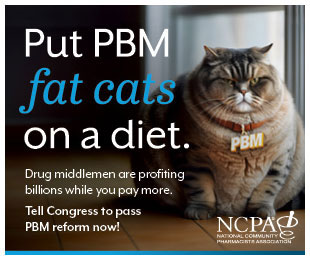Dear Colleague,
 Driving home after practice last night, I was explaining who Yogi Berra was to my middle school son. Berra was one of the all-time baseball greats who played with 10 championship teams in the '50s and '60s. But he's almost more famous for his funny pearls of wisdom, like, "It ain't over 'til it's over," which are now called Yogi-isms. My son didn't get it. Another famous Yogi-ism is, "They were 100 percent right most of the time." (He may not have actually said that, but it sure sounds like him.) And that observation could be applied to those professional political pollsters and prognosticators who swung and missed in last week's election.
Driving home after practice last night, I was explaining who Yogi Berra was to my middle school son. Berra was one of the all-time baseball greats who played with 10 championship teams in the '50s and '60s. But he's almost more famous for his funny pearls of wisdom, like, "It ain't over 'til it's over," which are now called Yogi-isms. My son didn't get it. Another famous Yogi-ism is, "They were 100 percent right most of the time." (He may not have actually said that, but it sure sounds like him.) And that observation could be applied to those professional political pollsters and prognosticators who swung and missed in last week's election.
For pharmacy and NCPA, election results have huge ramifications. The federal government is pharmacy's biggest business partner with Medicare and Medicaid alone making up 55 percent of the average community pharmacy's business mix, according to the NCPA Digest, sponsored by Cardinal Health.
Who is in the White House has a big impact on whether pharmacy issues get addressed by Congress or federal agencies like the FTC. PBMs were handed the keys to Medicare Part D with the George W. Bush White House, and the Obama administration moved health plans to the front of the line. President Trump's first term had some encouraging moments, such as when he said, "The middlemen became very, very rich ... whoever those middlemen were—and a lot of people never even figured it out—they're rich. They won't be so rich anymore. Our plan will end the dishonest double-dealing that allows the middleman to pocket rebates and discounts that should be passed on to consumers and patients."
Those plans were championed by HHS Secretary Alex Azar, but they got scuttled by some of Trump's other advisers. Which goes to this point: Perhaps the most important decision any president can make impacting pharmacy is their choice of HHS secretary. That brings us to Robert F. Kennedy, Jr., whom President-elect Trump nominated late yesterday.
We don't know how he views pharmacy or PBMs, but his track record of being willing to drag large, powerful corporations into court is a potentially encouraging sign. After all, there are no bigger corporate bullies in America than the PBMs.
NCPA will be reaching out to Kennedy (assuming he gets confirmed by the Senate) to educate him on how PBM business practices are causing one of the most important public health assets in the country—community pharmacies—to go out of business. If Kennedy surrounds himself with experts who understand community pharmacy—as Azar did—it exponentially increases the likelihood of good progress being made.
Having champions in Congress who understand pharmacy issues and listen to their constituents rather than lap up the PBMs' corporate schmoozing is essential. Reps. Buddy Carter (R-Ga.) and Diana Harshbarger (R-Tenn.), the only two pharmacists in Congress, were re-elected. They are already on the Energy and Commerce Committee—the committee that the majority of pharmacy legislation must pass through to have a shot at being voted on. Carter and Harshbarger are both Republicans and with the Republicans taking majority control of the House next year, plus both of them growing in seniority, their influence will only increase.
 This year Congress will be in session for 20 more days before they adjourn. There are several pieces of legislation that have to be addressed in that time period—including funding the government. NCPA is pushing hard and rallying our members and partners for a final push to pass legislation that would pay pharmacies fairly in Medicaid and be a first step in Medicare reform. We're calling this last push of the year "10 to win": If every pharmacist were to get 10 of their patients to send letters to their representatives in Congress, they'd be flooded with messages in support of PBM reform. Here what you need to do for this EOY push.
This year Congress will be in session for 20 more days before they adjourn. There are several pieces of legislation that have to be addressed in that time period—including funding the government. NCPA is pushing hard and rallying our members and partners for a final push to pass legislation that would pay pharmacies fairly in Medicaid and be a first step in Medicare reform. We're calling this last push of the year "10 to win": If every pharmacist were to get 10 of their patients to send letters to their representatives in Congress, they'd be flooded with messages in support of PBM reform. Here what you need to do for this EOY push.
Changing the pharmacy payment model remains NCPA's focus. A lot of progress has been made during the two years of this Congress. Now it needs to get over the finish line! As Yogi said: "You give 100 percent in the first half of the game, and if that isn't enough, in the second half you give what's left."
Best,

B. Douglas Hoey, Pharmacist, MBA
NCPA CEO
